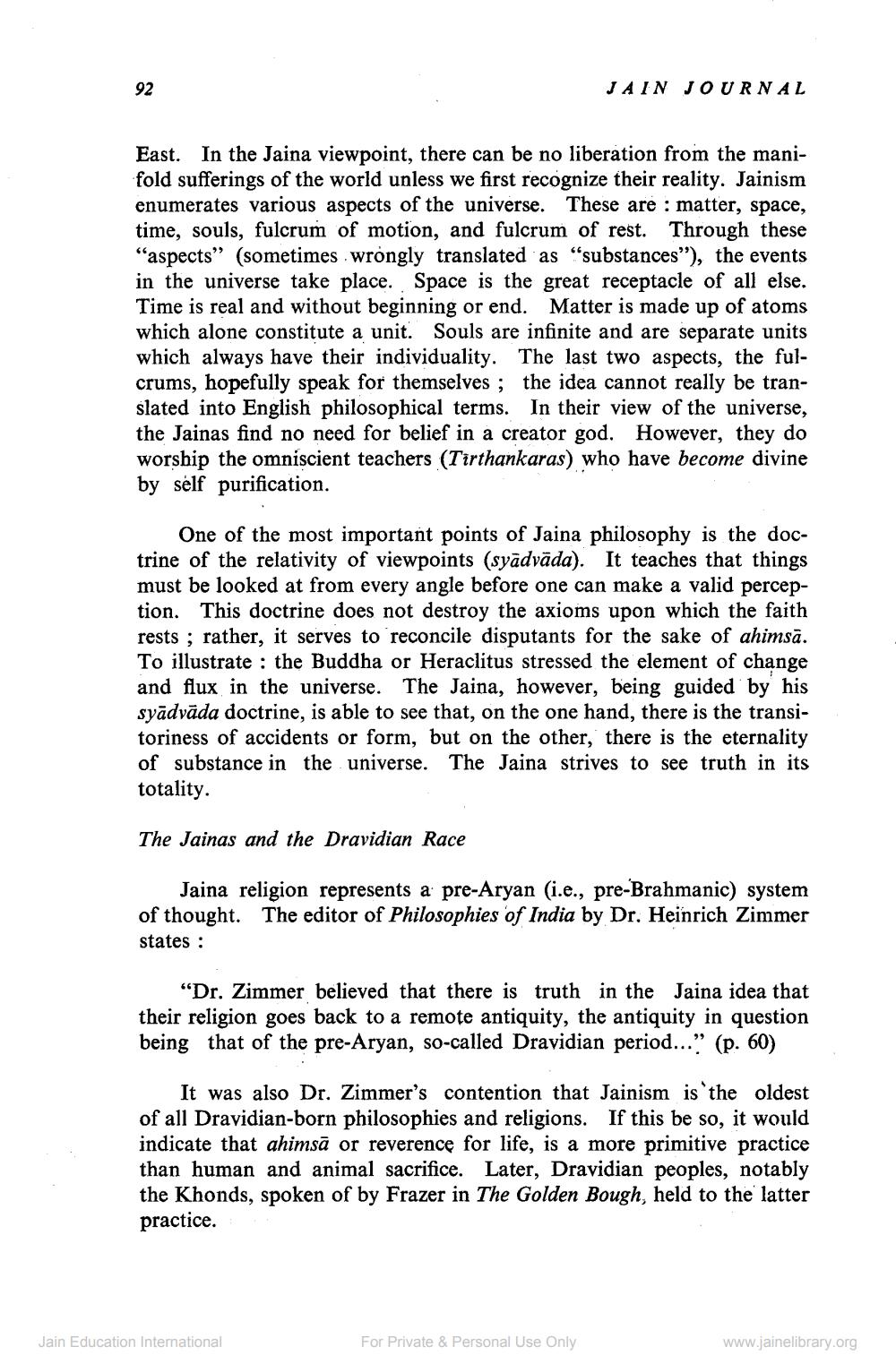Book Title: Jain Journal 1972 01 Author(s): Jain Bhawan Publication Publisher: Jain Bhawan Publication View full book textPage 6
________________ 92 East. In the Jaina viewpoint, there can be no liberation from the manifold sufferings of the world unless we first recognize their reality. Jainism enumerates various aspects of the universe. These are: matter, space, time, souls, fulcrum of motion, and fulcrum of rest. Through these "aspects" (sometimes wrongly translated as "substances"), the events in the universe take place. Space is the great receptacle of all else. Time is real and without beginning or end. Matter is made up of atoms which alone constitute a unit. Souls are infinite and are separate units which always have their individuality. The last two aspects, the fulcrums, hopefully speak for themselves; the idea cannot really be translated into English philosophical terms. In their view of the universe, the Jainas find no need for belief in a creator god. However, they do worship the omniscient teachers (Tirthankaras) who have become divine by self purification. JAIN JOURNAL One of the most important points of Jaina philosophy is the doctrine of the relativity of viewpoints (syadvāda). It teaches that things must be looked at from every angle before one can make a valid perception. This doctrine does not destroy the axioms upon which the faith rests; rather, it serves to reconcile disputants for the sake of ahimsa. To illustrate the Buddha or Heraclitus stressed the element of change and flux in the universe. The Jaina, however, being guided by his syadvāda doctrine, is able to see that, on the one hand, there is the transitoriness of accidents or form, but on the other, there is the eternality of substance in the universe. The Jaina strives to see truth in its totality. The Jainas and the Dravidian Race Jaina religion represents a pre-Aryan (i.e., pre-Brahmanic) system of thought. The editor of Philosophies of India by Dr. Heinrich Zimmer states: "Dr. Zimmer believed that there is truth in the Jaina idea that their religion goes back to a remote antiquity, the antiquity in question being that of the pre-Aryan, so-called Dravidian period..." (p. 60) It was also Dr. Zimmer's contention that Jainism is the oldest of all Dravidian-born philosophies and religions. If this be so, it would indicate that ahimsa or reverence for life, is a more primitive practice than human and animal sacrifice. Later, Dravidian peoples, notably the Khonds, spoken of by Frazer in The Golden Bough, held to the latter practice. Jain Education International For Private & Personal Use Only www.jainelibrary.orgPage Navigation
1 ... 4 5 6 7 8 9 10 11 12 13 14 15 16 17 18 19 20 21 22 23 24 25 26 27 28 29 30 31 32 33 34 35 36 37 38 39 40 41 42 43 44 45 46 47 48 49 50 51 52
